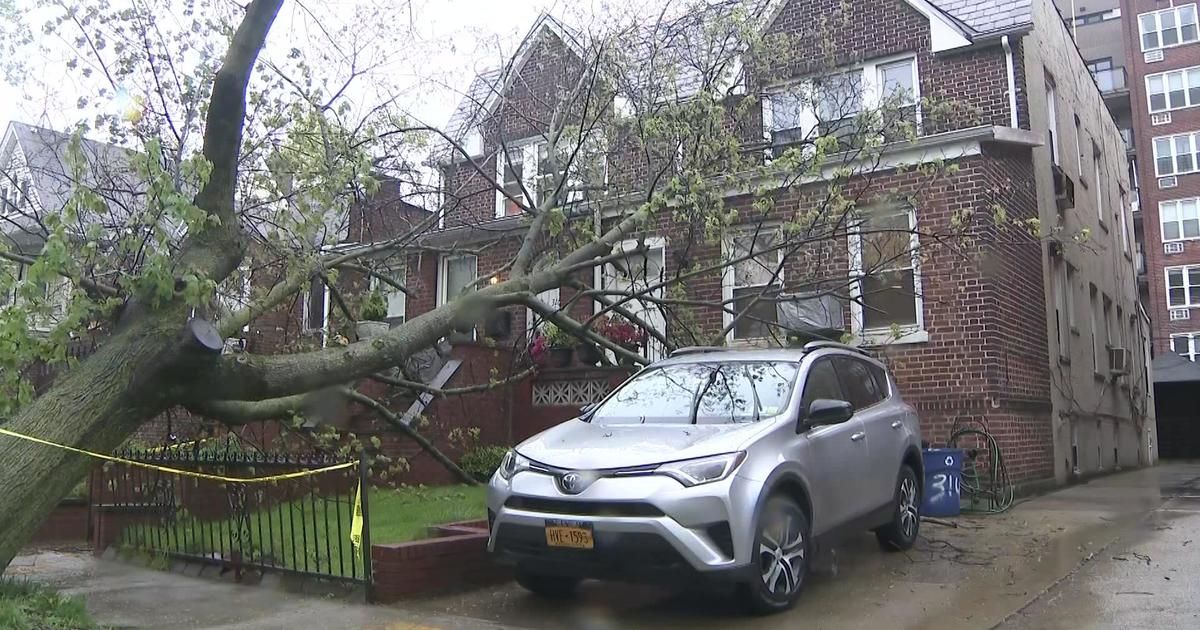Doctors Warn Nearsightedness On The Rise In Children
NEW YORK (CBSNewYork) -- There's a growing epidemic of nearsightedness in children in the United States that can lead to serious vision loss, according to doctors.
As CBS2's Dr. Max Gomez reported, it may be possible to slow the problem with eye drops.
Nearsightedness, or Myopia, often starts in childhood and gets worse at least until puberty. The worse it gets, the more likely it can cause serious vision problems.
10-year-old Alissa Bernao has gotten used to regular eye exams. She's been nearsighted since at least the first grade.
"She started complaining that she couldn't see the board, she starts squinting," Alissa's mom, Alexys Bernao-Blanco said.
It eventually led to Alissa getting glasses, which used to be rough for kids. Since there's so many nearsighted kids these days, she actually likes them.
"Sometimes I'm worried whenever I'm like playing a sport or running that they're gonna fall off and break but they're actually really secure and glasses make you look better, and they make you look smart," Alissa said.
As Alissa and other children grow, their eyes grow a little longer as well which makes their Myopia worse and potentially puts them at risk for eye problems.
"If it reaches a certain level, the children are now more prone to having ocular health problems that could lead to vision loss," Dr. Erica Schulman from SUNY's College of Optometry said. "We really want to prevent the eye from growing too much and causing the increase in nearsightedness."
That's just the thing a certain type of eye drops may prevent. As part of a clinical trial at SUNY, Alissa gets a drop of Atropine in each eye at bed time.
"It kind of stings a little bit," Alissa said. "Not too bad, like five seconds and you're done."
The trial aims to enroll 400 kids nationwide with the goal of slowing the progression of Myopia. Earlier studies suggest it might cut the progression by 50 percent, although it's not clear why.
"There's some theories that it affects some receptors in the back of the eye," Dr. Schulman said. "Maybe in the layers of the choroid, layers in the retina."
Doctors don't know how fast Alissa's Myopia would have progressed without the drops, but mom knows it's getting a little worse.
"She mentioned this school year that she had to be sitting in the front again because she needs to be closer to the board," Alexys said.
The kids in the trial will be followed for years. The Atropine eye drops are safe and come with minimal side effects, especially when used at bed time.
The SUNY Optometry trial is still recruiting nearsighted kids from ages three to ten. For more information on how you can enroll, CLICK HERE.



